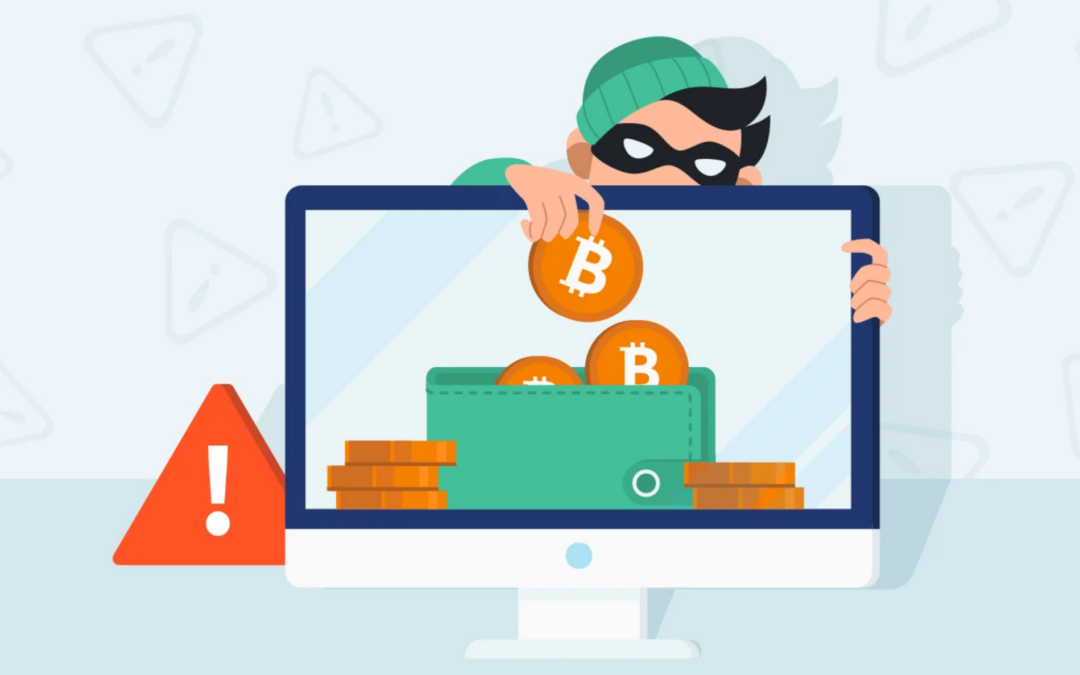Most Common Crypto Scams and Frauds
Scams involving cryptocurrency can take numerous forms. Scammers, like bankers, want your cryptocurrency and will go to any length to obtain it. To secure your crypto assets, it’s essential to understand when and how you’re being targeted and what to do if you are being victim of a cryptocurrency fraud.
Scammers are employing tried-and-true fraud tactics, but this time, they’re demanding payment in bitcoin. Investment scams are one of the most common methods scammers use to deceive you into purchasing cryptocurrencies and delivering them to them. Scammers, conversely, impersonate corporations, government bodies, and even a love interest, among other things. Social media is a popular destination for investment scammers: Many consumers who reported losing money to a cryptocurrency scam stated it started with a social media ad, post, or message. Despite cryptocurrency’s high-tech luster, many associated schemes are newfangled versions of old scams.
Thieves and scammers might obtain your cryptocurrency or fool you into delivering it to them in various methods. Crypto scams frequently attempt to get private information, such as security codes, or to deceive an unsuspecting individual into sending cryptocurrency to a corrupted digital wallet. Giveaways, romance scams, phishing, extortion emails, phony corporate notifications, blackmail, rug pulls, initial coin offers (ICOs), non-fungible tokens (NFTs), and fraudulent mining software or networks are some scams.
Here is a list of the most common scams to be aware of this year:
1. Blackmail and extortion scams
Some scammers claim to have humiliating personal material, including your own images or videos, to draw you into a trap. They will usually threaten to publicize the information but then promise to keep it private if you do what they want. Their requests are always the same – you can immediately solve the situation by sending them a cryptocurrency transfer.
2. Schemes for Investing in Bitcoin
Scammers contact investors in bitcoin investment schemes, claiming to be experienced “investment managers.” As part of the fraud, the so-called investment managers claim to have gained millions of dollars investing in Bitcoin and promise their victims that they, too, will profit from their investments.
3. Imposter and Giveaway Scams
Scammers also try to act as celebrities, businesses, or bitcoin influencers as they move down the sphere of influence. In a giveaway scam, scammers usually claim to equal or multiply the bitcoin donated to them to attract potential victims’ attention. Well-crafted messaging from an established social media profile may seem legit and trust worthy. This illusory “once-in-a-lifetime” opportunity may entice people to transfer assets immediately to expect an immediate return.
4. Phishing scams
Phishing scams have been around for a while yet are still prevalent. Scammers sending emails containing malicious links to bogus websites to obtain personal information, such as cryptocurrency wallet critical information.
Bitcoin investment scams, rug pull scams, romance scams, phishing scams, man-in-the-middle assaults, social media giveaways, Ponzi schemes, bogus exchanges, and fraudulent jobs are all common cryptocurrency frauds. These are some of the most popular Bitcoin frauds. In contrast to passwords, consumers only receive one unique private key to digital wallets. However, if a private key is stolen, changing it isn’t easy. Because each key is unique to a wallet, updating this key necessitates the creation of a new wallet. Never enter secure information from an email link to avoid phishing attacks.
5. New Crypto-Based Opportunities: ICOs and NFTs
Crypto-based investments, like initial coin offerings (ICOs) and non-fungible tokens (NFTs), have provided scammers with even more ways to steal their money. What’s vital to understand is that while crypto-based investments or business prospects may appear lucrative, they don’t always reflect reality. Some scammers, for example, establish bogus ICO websites and advise people to deposit cryptocurrency into a hacked wallet.
6. Cloud mining fraud
Cloud mining it’s about to firms that rent out mining hardware in exchange for a determined price and a percentage of the revenue you allegedly generate. Theoretically, this allows users to mine remotely without purchasing expensive mining equipment. On the other hand, many cloud mining organizations are scams or, at best, unproductive, resulting in you losing money or earning less than was promised.
Takeaways
Scammers can be avoided by exercising essential digital security habits such as using strong passwords, using only secured connections or VPNs, and choosing safe storage. Wallets are classified into two types: digital and physical. Digital wallets are hosted online and, therefore, more likely to be hacked. Hardware wallets, such as the Bitcoin wallet and keys, hold information offline within a device.
If you need further assitance do not hesitate and contact us.


Recent Comments